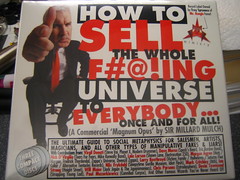As a marketer, I’m excited when I see advances in social media monitoring technology and the way we can use tools like text analytics, ontology and Natural Language Processing (NLP) to really understand our audience and their behaviours.
This level of data mining allows businesses to go way beyond the existing information they have not only on their existing customers, but potential ones, and really laser in on the kind of promotions, products and services that consumer is looking for.
However…
As a consumer, I’m increasingly concerned at that same level of data, and how technology can be used (often without our strict permissions) to define us as a person and make us a “target” (even though it’s for products and services we’re interested in).
Consider these points:
- Does Google really need us to answer so many personal questions when activating an Android phone?
- Does Facebook really need to allow apps to delve into our accounts and those of our friends (without their knowledge)?
- Do social media monitoring technologies really have our best interests at heart, or simply those of the businesses they sell to?
As a marketer, I know the benefits targeted marketing and advertising can offer. But I also see the data some people may not want to have public.
For example, should a gambler or alcoholic be targeted by keywords and natural search, even if it’s by an Alcoholics Anonymous group or responsible gambling organization? What if their details were accidentally made public?
Should teens be targeted to see what their brand preferences are, to tailor the next generation of advertising for these soon-to-be-consumers? Or should we just let them be teens and loop back in a few years time?
Or do we benefit by the level of data that’s available? After all, it’s the open research web now, so this is just a by-product of that and results in us being served better and more relevant ads.
I’m really curious to hear your thoughts on this – where do the lines blur between useful data and invasive data?
Let’s start the conversation.
image: Sri Harsha Meghadri


 So there’s been plenty written about why
So there’s been plenty written about why